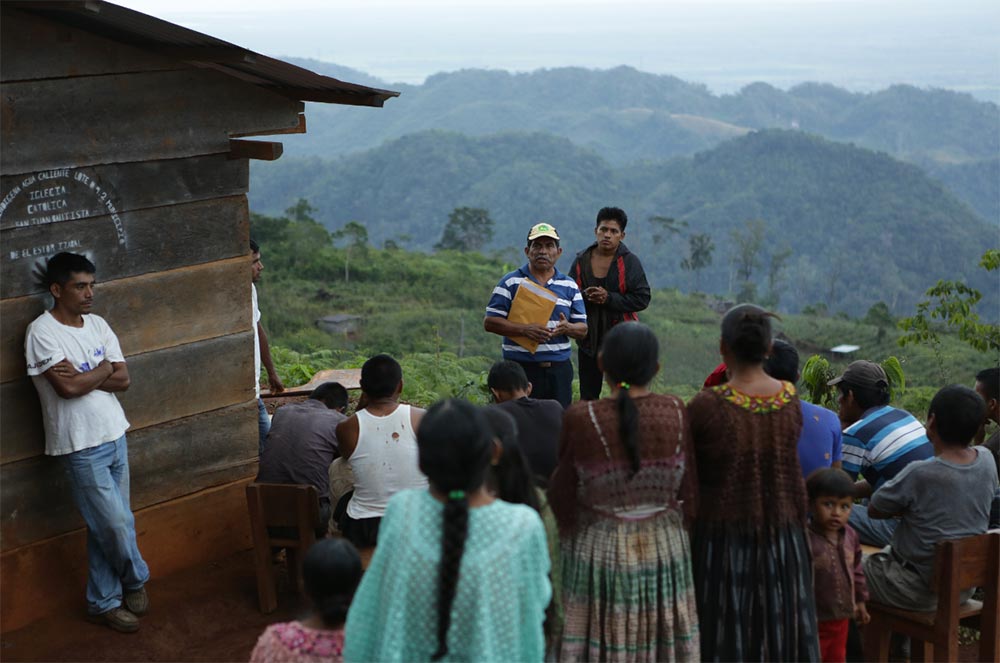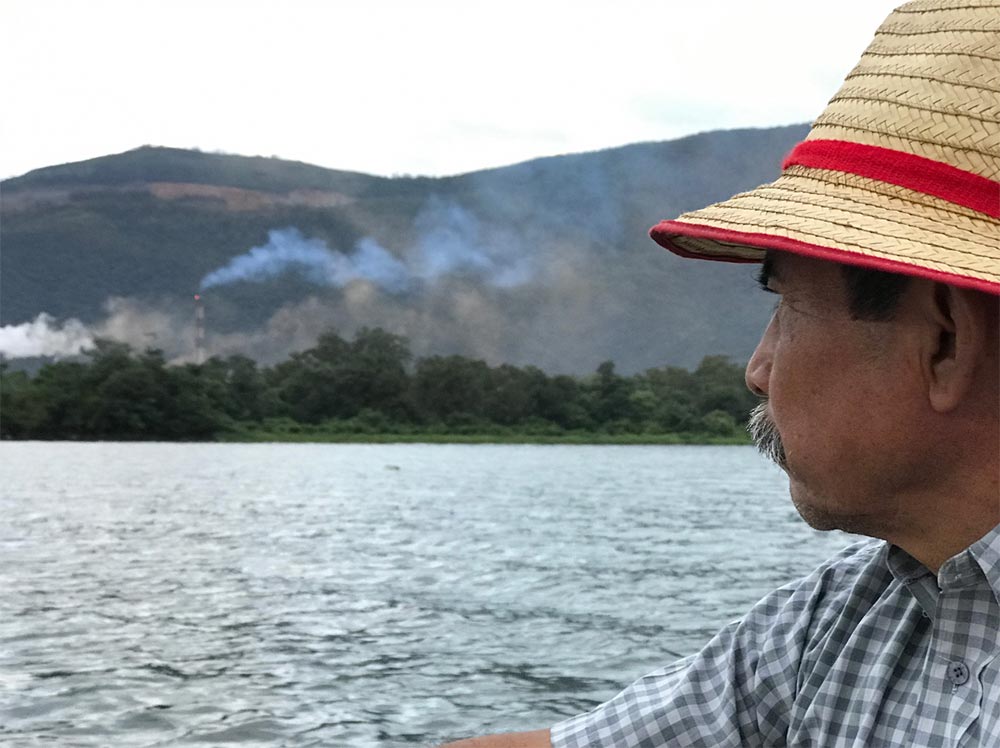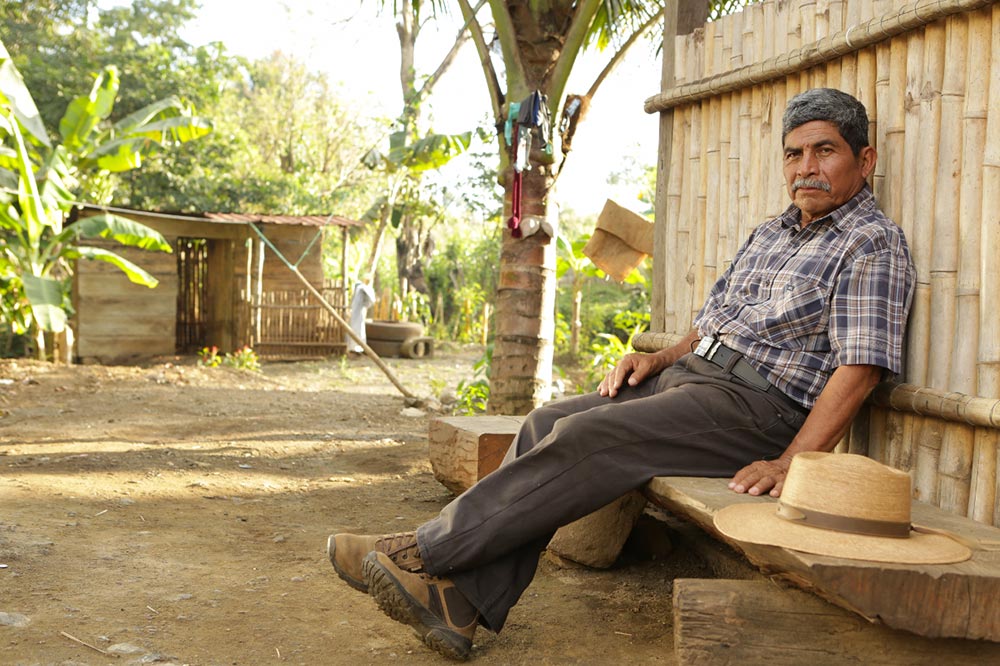By International Human Rights Clinic students Franziska Angerer, Devon Hickey, and Diann Jayakoddy, under the supervision of Prof. Francisco Rivera
In Spring 2022, the International Human Rights Clinic at Santa Clara Law (“Clinic”) submitted an amicus curiae (“friend of the court”) brief to support the right to collective property of an indigenous community, in the case of Maya Q´eqchi´ Indigenous Community of Agua Caliente v. Guatemala pending in front of the Inter-American Court of Human Rights (“Court”). The brief (in Spanish) can be found here. The Clinic argued that Guatemala failed to recognize the collective land rights of the Agua Caliente community and did not conduct a free, prior, and informed consultation nor obtained the consent of the community for a mining project within the community’s traditional territory. This case is the first to address indigenous land rights in Guatemala to reach the Court, despite the large percentage of indigenous people in Guatemala.
Agua Caliente is an indigenous pre-colonial community of approximately 369 inhabitants who have a special relationship with the lands they have traditionally possessed in the north of Guatemala. They rely heavily on their territory for subsistence by farming and fishing. In the 19th century, Guatemala gave away the lands of the Agua Caliente community to individuals, without just compensation, while failing to prove the needed social interest. Up until this day, the community’s efforts to regain legal title to their territory have not been successful. Presently, the State does not have an adequate domestic legal framework that allows the recognition of collective property ownership and title of the traditional lands of indigenous people, like the Agua Caliente community.

Agua Caliente community in Guatemala. Source .
Currently, the Agua Caliente community is in dispute with the government of Guatemala over a large mining project called Phoenix. The project has damaged the community’s territory since 2006 when Guatemala’s Ministry of Energy and Mines issued a license to a private company to carry out mining operations within the community’s traditional territory. This license required an Environmental Impact Study, which had to be approved by the environmental quality unit of the General Directorate of Environmental Management and Natural Resources of the Ministry of Energy and Mines. Although Guatemala performed a study, it was only published in Spanish, but the community’s primary language is Q’echí and most of its members do not speak nor read Spanish. Additionally, the study was published in a newspaper, which was never distributed among the affected communities. The study also did not address all the potential environmental and social harms of the mining project. Therefore, Guatemala failed to inform the community about the project, while impermissibly shifting the burden of obtaining information to the indigenous peoples. Consequently, Guatemala violated Agua Caliente’s right to free, prior and informed consultation. However, consultation alone would not have been enough due to the significant impact on the community’s territory. Due to the severity of the impact on the traditional lands, international human rights law also guarantees the community the right to free and informed consent prior to the damaging act, which the State also failed to obtain.

Agua Caliente community leader, Rodrigo Tot. Source .
The brief urges the Court to find Guatemala internationally responsible for the human rights violations alleged by the petitioning community. The American Convention of Human Rights (“ACHR”) provides the legal foundation for Guatemala’s violations. Articles 21 and 23 of the ACHR, in connection with Articles 1.1 and 2, establish that everyone has the right to use and enjoy their property and not be deprived of it without just compensation, including the right to be properly consulted before the State intervenes to restrict collective property rights. In the case of indigenous peoples, States have additional obligations to guarantee collective right to traditional lands. As mentioned in the facts above, Guatemala failed to recognize and abide by these articles.
Consequently, the Clinic asked the Court to declare Guatemala in violation of its international human rights obligations and order Guatemala to provide effective remedies to the community of Agua Caliente. Additionally, the Clinic hopes the Court will order Guatemala to modify its domestic laws to adequately recognize the rights of indigenous peoples to collective land titles and to be consulted. This modification will satisfy and correspond with Guatemala’s international human rights law obligations under the American Convention of Human Rights.

Agua Caliente community leader, Rodrigo Tot. Source .
During the course of roughly a year, law students Jonathan Johnson, Cassandra Wilkins, Devon Hickey, Diann Jayakoddy, and Franziska Angerer worked on the brief; guided and supervised by the Clinic’s Director, Professor Francisco Rivera.
Among others, a main takeaway while working on the brief was the importance of expedient communication while working in a group. Thanks to constructive weekly team meetings, students were able to successfully divide and delegate tasks between the team. One of the challenges of this project was to carry forward the work started by prior students. The project ran over the timespan of three semesters, resulting in five different students working on the brief. We learned how to build from work done by prior students and how to revise and edit the brief multiple times to achieve the best argument. This was a great experience and provided training on how to continue a project on which others had worked. Furthermore, we were all very thankful for the work and research done by all students who worked on the brief before we picked up the draft in late January, only a month before it had to be submitted in front of the Court. This brief will hopefully help persuade the Court to find the State of Guatemala in violation of guaranteeing human rights to the community of Agua Caliente and bring a domestic change for the advancement of indigenous rights in Guatemala.
The Clinic’s brief (in Spanish) can be found here.